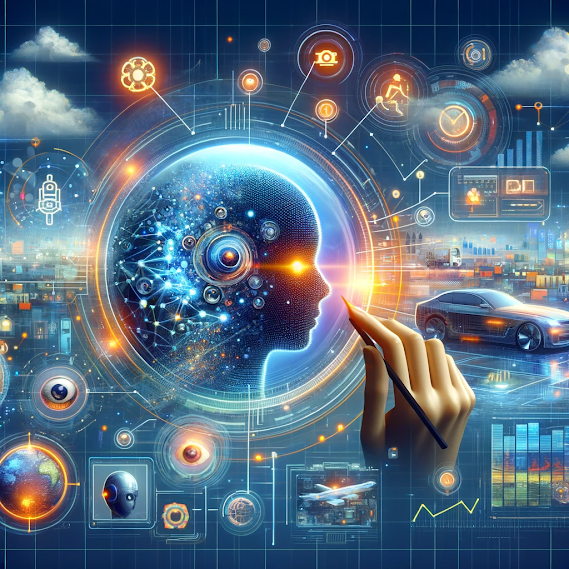Revolutionizing Mental Healthcare: The Transformative Role of AI in Enhancing Diagnosis and Treatment
Revolutionizing Mental Healthcare: The Transformative Role of AI in Enhancing Diagnosis and Treatment
Anxiety and depression not only impact millions of lives around the globe but also lead to a staggering loss of about US$1 trillion in global productivity annually, as reported by The Lancet Global Health. This immense economic and social cost underscores the critical challenges faced by the mental healthcare sector: a rising number of mental health cases and a severe shortage of mental health professionals. The imbalance between increasing demand and limited care availability, exacerbated by the COVID-19 pandemic, has strained healthcare systems worldwide, calling for innovative solutions in mental healthcare.
Artificial Intelligence: A Beacon of Hope in Mental Healthcare
Artificial Intelligence (AI) stands out as a significant boon to mental healthcare, enhancing early detection, diagnosis, and treatment. AI applications in this sector are diverse and impactful:
🤖 AI Therapists and Chatbots: Tools like #Woebot and #Tess are revolutionizing mental healthcare by providing round-the-clock emotional support. These AI-powered chatbots adapt to users' needs and aid in symptom management. They can facilitate referrals to human professionals when necessary, bridging the gap in mental healthcare accessibility.
⌚ Wearable Monitoring: Devices such as Biobeat offer innovative ways to monitor mental health. These wearables track physiological data in real-time, aiding in the early intervention of mental health issues. This continuous monitoring can provide invaluable insights into the correlation between physical and mental health, paving the way for proactive mental healthcare.
📊 Diagnostic and Predictive Analysis: AI's ability to analyze extensive datasets is a game-changer in mental health diagnosis. By evaluating data from various sources, #AI can effectively predict and classify mental health issues, offering a level of precision and personalization previously unattainable in traditional diagnostic methods.
💊 Enhancing Patient Compliance: One of the challenges in mental healthcare is ensuring treatment adherence. AI addresses this by predicting potential adherence issues and sending reminders or alerts to healthcare providers. This proactive approach ensures that patients remain engaged and compliant with their treatment plans.
📋 Personalized Treatment Plans: AI's role in monitoring treatment responses is pivotal in developing customized care strategies. For instance, projects like UC Davis's schizophrenia research utilize #AI to tailor treatment plans to individual patient responses, enhancing the effectiveness of mental healthcare.
Challenges and Considerations in AI-Integrated Mental Healthcare
However, the integration of AI in mental healthcare is not without its challenges. Concerns regarding privacy, the potential reduction of human interaction in therapy, and algorithmic biases need to be addressed thoroughly. It is crucial that #AI supports rather than supplants human care. The effectiveness and impact of AI in mental healthcare require ongoing evaluation, ensuring that it complements and enhances traditional therapeutic approaches.
The Road Ahead: Balancing #AI and Human Touch in Mental Healthcare
The future of mental healthcare with AI integration appears promising, offering solutions to some of the most pressing challenges in the sector. However, maintaining a balance between technological innovation and the indispensable human touch in therapy is essential. AI should be seen as a tool that augments and supports human professionals, not as a replacement.
In conclusion, AI holds the potential to transform mental healthcare, offering innovative approaches to early detection, diagnosis, treatment adherence, and personalized care. Its integration into mental healthcare could significantly alleviate the strain on healthcare systems and improve the quality of life for millions of individuals suffering from mental health issues. The key lies in responsibly harnessing AI's capabilities, ensuring it enhances and complements human-driven care, and addressing ethical considerations to realize its full potential in mental healthcare.
More articles about AI applications here.

.png)
.jpeg)

.jpg)
Comments
Post a Comment